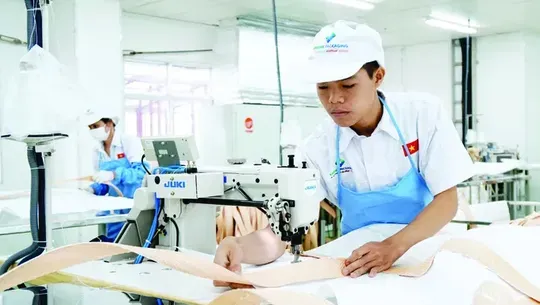
Never before have pivotal decisions aimed at fostering the private economic sector materialized with such decisive force and in such a remarkably condensed timeframe as witnessed recently. The impetus began on May 4, 2025 with the issuance of the Politburo’s Resolution No. 68-NQ/TW concerning private sector development.
This was swiftly followed on May 17, when, at the close of its morning session, the National Assembly ratified Resolution No. 198/2025/QH15, outlining several special mechanisms and policies dedicated to this cause.
Subsequently, in the morning of May 18, a national conference convened to deliberate on and strategize the implementation of both Politburo Resolution No. 68-NQ/TW and Resolution No. 66-NQ/TW, the latter focusing on reforming legislative processes and law enforcement to align with the nation’s developmental imperatives in this new epoch.
Managing a business is often aptly compared to navigating a vehicle. While the ambition is invariably to travel far and fast, safety remains paramount. Few would risk excessive speed knowing a “post-incident fine” – a penalty for an unseen infraction – could arrive imminently. By extension, entrepreneurs and businesses require not only smooth, open pathways for growth but also a clear, transparent, and consistently applied regulatory framework – their “rules of the road”.
The recent resolutions transcend mere encouragement; they represent robust political commitments, now institutionalized, designed to offer maximum protection for the rights and interests of entrepreneurs and businesses. Crucially, they also aim to guarantee equitable access to and utilization of vital resources, including capital, land, natural assets, technology, human capital, and data.
Prioritizing the development of the private economic sector is instrumental in cultivating an economy distinguished not just by quantitative expansion but also by profound qualitative depth – an ecosystem where every component has its niche, commands respect, and can leverage its value within a tightly interwoven and harmonious framework.
In his address at the May 18 conference, General Secretary To Lam offered a particularly resonant and insightful metaphor, urging the private sector to operate in concert with other economic segments to “forge a steadfast ‘three-legged tripod’ underpinning an independent, self-reliant, and successfully integrated national economy.”
Practically speaking, the persistent segmentation among economic sectors continues to be a primary impediment to holistic development. While state-owned enterprises (SOEs) dominate crucial domains like energy, telecommunications, and infrastructure, and foreign direct investment (FDI) ventures are largely concentrated in manufacturing and exports, domestic private enterprises frequently find themselves in an “auxiliary” capacity, seldom deeply integrated into the higher value-added echelons of global supply chains.
Within SOEs, a lingering subsidy-oriented mentality, coupled with unnecessary administrative intervention and a tendency to retain control over sectors where private entities could arguably perform more effectively, has resulted in operational efficiencies often misaligned with the scale of investment.
Furthermore, complicated and rigid legal frameworks stifle the innovative potential of SOEs. This culminates in a curious paradox, aptly captured by a National Assembly deputy: “SOEs aspire to the agility of private firms, while private firms covet the perceived advantages of SOEs.”
This suggests that SOEs, too, require enhanced operational autonomy, a reduction in administrative encumbrances, and a strategic focus on domains that the private sector is either unable or unwilling to engage in. Concurrently, fostering collaborative models between SOEs and private enterprises is imperative.
A case in point is Viettel’s 2021 collaboration with private firms across its 5G network project supply chain – encompassing component manufacturing, software development, and technical solutions – a clear demonstration of synergistic capability-sharing between different economic players.
Likewise, actively promoting cooperative ventures between FDI entities and domestic private enterprises is crucial, founded upon principles of mutual benefit, and shared responsibility and risk. Strategic policies are essential to channel FDI into high-technology sectors that generate significant added value, while also fostering robust linkages and facilitating technology transfer to local businesses.
Attaining this requires a paradigm shift in the investment incentive framework for FDI enterprises: incentives should be performance-based, tied to explicit investment attraction targets with clear, specific benchmarks, thereby moving away from indiscriminate, "one-size-fits-all" preferential treatment.
Achieving the ambitious target of 8-percent GDP growth in 2025 and aspiring to double-digit expansion in subsequent years demand extraordinary commitment from the entire political apparatus, the entrepreneurial community, and society at large. The newly enacted resolutions provide a critical groundwork, unequivocally affirming the private sector’s pivotal role as a primary economic engine.
However, translating this vision into tangible reality hinges on cultivating and harnessing the collective strength derived from effective synergy among all three “legs of the tripod”, namely the state-owned sector, the private domestic economy, and FDI enterprises.
Sustainable economic development is best assured when these three pillars are robust, each occupying its merited position, and all are aligned towards the common objective of forging a formidable nation and ensuring widespread prosperity for its citizens.
























